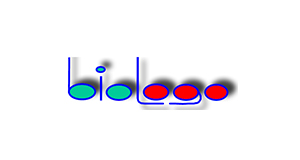N-CAM, Neuronal Cell Adhesion Molecule, CD56
N-CAM, Neuronal Cell Adhesion Molecule, CD56, IgG1, Host: Mouse, Monoclonal, Clone: RNL-1
Clone: RNL-1.
Background: Antibody RNL-1 shows heavy N-CAM expression on cells of the small cell lung carcinoma (SCLC), neuroblastoma, nerves, Leydig-cells, thyroid epithelia and parafollikular cells, pancreas islet cells, adrenal cortex and medulla, and hypophysis. Little differentiated squamous lung tumours may by RNL-1 positive, while adenocarcinoma of the lung are negative. The antibody may be used for differentiating the types of lung tumours. N-CAM is an antigen, that is characteristic of cells of neuroectodermal origin. In the blood it is mainly found on NK-cells (CD56). It is a heavily glycosylated trans-membrane protein. On the 3. International Workshop for Lung tumours and Differentiation antigens (Zürich 1993) N-CAM was assigned to cluster 1 antigens of lung carcinoma (typical for SCLC). Extracellular domain of the N-CAM molecule (200, 100 and 25-27 kDa proteins of NCI-H82 SCLC cell line in western blot).
Positive Control: Pancreas islets or adrenal medulla.
Immunogen: NCI-H82 cell preparation.
Purification Method: Cell culture supernatant containing 0.09% sodium azide as preservative.
References: 1. Broers V.J.L., Mijnheere E.P., Rot M.K., Schaart G. Sijlmans A., Boerman O.C., and Raaemaekers F.C.S. (1991) Novel antigens charakteristic of neuroendocrine malignancies. Cancer 67,3; 619-633. 2. Boerman O.C., Mijnheere E.P., Broers J.L.V., Vooijs G.P., and Ramaekers F.C.S. (1991) Biodistribution of a monoclonal antibody (RNL-1) against the neural cell adhesion molecule (NCAM) in athymic mice bearing human small-cell lung-cancer xenografts. Int. J. Cancer 48; 457-462. 3. Stahel R.A., Gilks W.R., Schenker Th., and Gerardy-Schahn R. (1995) NK3.1 Third International Workshop on Lung Tumour and Differentiation Antigens: summary and report on NCAM studies. In: Leucocyte Typing V. Schlossman S.F. et al. eds. Oxford University Press, Oxford, N.Y. Tokyo.
UniProt: P13591.
Caution: *These antibodies are intended for in vitro research use only. They must not be used for clinical diagnostics and not for in vivo experiments in humans or animals. ** The preservative sodium azide is known to be poisonous and potentially hazardous to health. It should be handled only by trained staff. Despite of the product's low azide concentration it must be handled with care. Dispose according to regional rules!
Background: Antibody RNL-1 shows heavy N-CAM expression on cells of the small cell lung carcinoma (SCLC), neuroblastoma, nerves, Leydig-cells, thyroid epithelia and parafollikular cells, pancreas islet cells, adrenal cortex and medulla, and hypophysis. Little differentiated squamous lung tumours may by RNL-1 positive, while adenocarcinoma of the lung are negative. The antibody may be used for differentiating the types of lung tumours. N-CAM is an antigen, that is characteristic of cells of neuroectodermal origin. In the blood it is mainly found on NK-cells (CD56). It is a heavily glycosylated trans-membrane protein. On the 3. International Workshop for Lung tumours and Differentiation antigens (Zürich 1993) N-CAM was assigned to cluster 1 antigens of lung carcinoma (typical for SCLC). Extracellular domain of the N-CAM molecule (200, 100 and 25-27 kDa proteins of NCI-H82 SCLC cell line in western blot).
Positive Control: Pancreas islets or adrenal medulla.
Immunogen: NCI-H82 cell preparation.
Purification Method: Cell culture supernatant containing 0.09% sodium azide as preservative.
References: 1. Broers V.J.L., Mijnheere E.P., Rot M.K., Schaart G. Sijlmans A., Boerman O.C., and Raaemaekers F.C.S. (1991) Novel antigens charakteristic of neuroendocrine malignancies. Cancer 67,3; 619-633. 2. Boerman O.C., Mijnheere E.P., Broers J.L.V., Vooijs G.P., and Ramaekers F.C.S. (1991) Biodistribution of a monoclonal antibody (RNL-1) against the neural cell adhesion molecule (NCAM) in athymic mice bearing human small-cell lung-cancer xenografts. Int. J. Cancer 48; 457-462. 3. Stahel R.A., Gilks W.R., Schenker Th., and Gerardy-Schahn R. (1995) NK3.1 Third International Workshop on Lung Tumour and Differentiation Antigens: summary and report on NCAM studies. In: Leucocyte Typing V. Schlossman S.F. et al. eds. Oxford University Press, Oxford, N.Y. Tokyo.
UniProt: P13591.
Caution: *These antibodies are intended for in vitro research use only. They must not be used for clinical diagnostics and not for in vivo experiments in humans or animals. ** The preservative sodium azide is known to be poisonous and potentially hazardous to health. It should be handled only by trained staff. Despite of the product's low azide concentration it must be handled with care. Dispose according to regional rules!
| SKU | BILNC100 |
|---|---|
| Manufacturer | BioLogo |
| Manufacturer SKU | NC100 |
| Green Labware | No |
| Package Unit | 1 ml |
| Quantity Unit | STK |
| Reactivity | Human |
| Clonality | Monoclonal |
| Application | Immunohistochemistry (frozen), Electron microscopy (EM) |
| Isotype | IgG1 |
| Host | Mouse |
| Product information (PDF) | Download |
| MSDS (PDF) | Download |

 Deutsch
Deutsch







